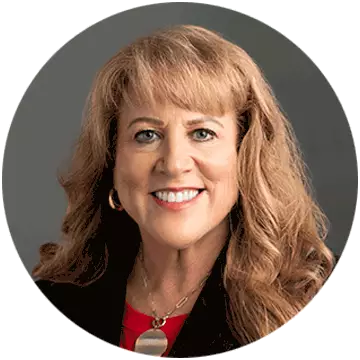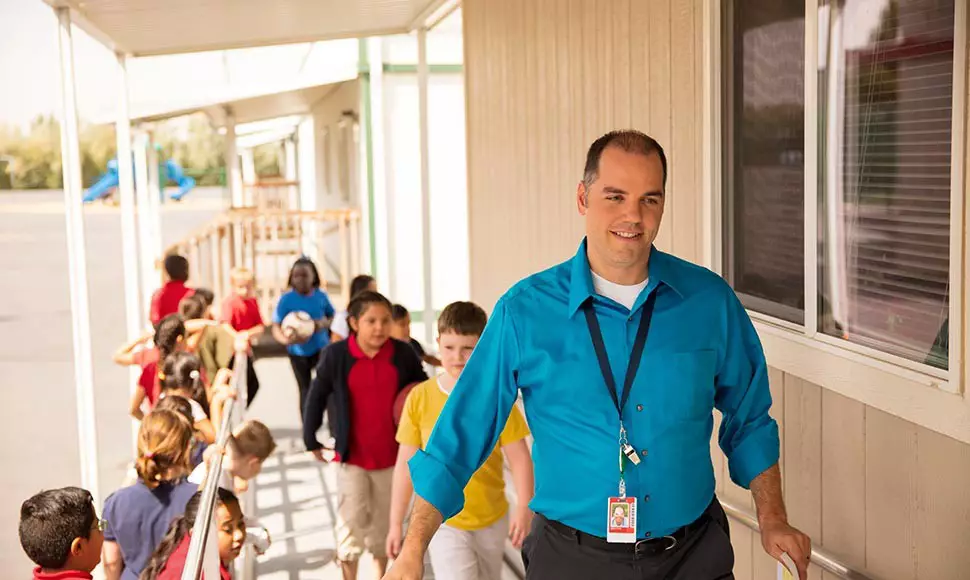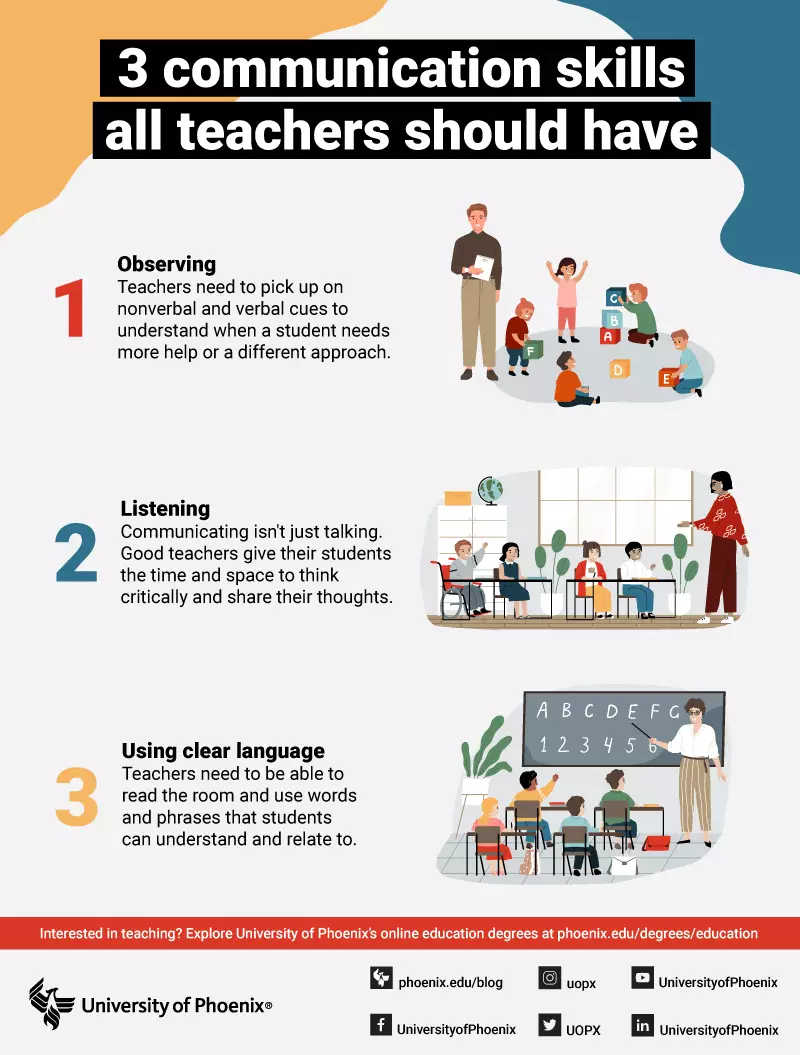Qualities of a good teacher

Written by Elizabeth Exline

Reviewed by Pamela M. Roggeman, EdD, Dean, College of Education

While it might be tempting to seek to become someone’s favorite teacher, most see the value in being the best. Or the most effective. And that raises the question: Just what exactly are the qualities of a good teacher?
How are qualities of a good teacher determined?
The answer to what the qualities of a good teacher are, like teaching itself, is complicated and multifaceted. It involves more than implementing the right educational learning theories. Even getting a master’s in education doesn’t guarantee that someone will have the characteristics of a good teacher.
In fact, according to “A Review of the Literature on Teacher Effectiveness and Student Outcomes,” which was published in 2019 as part of the International Association for the Evaluation of Educational Achievement, even teacher experience and education can’t be directly tied to positive student outcomes.
To cite Maslow’s hierarchy of needs, it becomes apparent that teachers must create an emotionally and physically safe environment for students before students can learn.
Creating a predictable environment for students is a necessary first step in that direction. Beyond that, there’s a host of soft skills identified as being integral to student success. Here is the shortlist of qualities of a good teacher.
A good teacher communicates clearly
Considering that a teacher’s job essentially boils down to sharing information, it’s not surprising that good communication tops the list of skills and qualities of a good teacher.
Depending on whom is asked, this quality might go by a different name, like setting clear objectives or showing respect. But, at the end of the day, all of those practices depend on strong communication skills.
So, what does good communication entail exactly? It involves:
- Observing: Teachers need to pick up on nonverbal and verbal cues to understand when a student needs more help or a different approach.
- Listening: Communicating isn’t just talking. Good teachers listen to their students, both in what they say and how they behave.
- Using clear language: Teachers need to be able to read the room and use words and phrases that students can understand and relate to.
Communication, in other words, is a pivotal social skill whose importance was underscored during the virtual learning experiment precipitated by the pandemic. Roggeman points out that children are social learners, and positive, healthy social settings depend on good communication. (Of course, proven online teaching strategies help in virtual learning formats too!)
A good teacher creates ample opportunities to learn
Optimizing productivity in the classroom depends on creating plenty of time to study course content. Yes, this seems obvious. But consider experiences at any kind of work. When interruptions eat into the day, it’s harder and harder to concentrate on the tasks at hand.
The same holds true for the classroom, where student interruptions (like messages at work) or even scheduled classroom management policies (like meetings at work) can wreak havoc on creating chunks of time for students to focus on a lesson.
As noted in “A Review of the Literature on Teacher Effectiveness and Student Outcomes,” there’s a “consistent relationship between student achievement and teacher behaviors (instructional time and instructional content). … The importance of instructional content has been recognized by national policymakers and has helped motivate standards-based reform.”
Building in time for learning opportunities relies on both organization and preparation, which are two related qualities of a good teacher.
A good teacher encourages students to take intellectual risks
One reason it's important to create a safe learning environment is that learning requires students to step into unfamiliar intellectual territory.
As a result, teachers rely heavily on empathy to help students navigate this experience. Teachers need to push at the right times and pull back at others, all while fostering a sense of community within the classroom.
A good teacher appreciates the audience
There’s an adage that says elementary teachers enter the field because they love to teach while secondary teachers enter the field because they love their area of expertise. Whether that’s true is probably relative, but it touches on one characteristic essential for being a good teacher: A teacher has to to enjoy the age of the kids they're teaching.
A good teacher values the intrinsic rewards of teaching
Another way to put it? Teaching is a labor of love.
Teachers don’t often get recognition from anywhere external like other leaders. Luckily for teachers, those rewards are everywhere in the classroom. For example, a “reward” might be getting a student to understand a concept after trying multiple methods over days or weeks. It might just be a hug from a kindergartner. Whatever form it takes, the teacher-student connection motivates all great teachers.
A good teacher is a lifelong learner
Teachers must have a serious dedication and desire for continuous growth and improvement. While teachers may trade in learning, it’s not a given that opportunities to learn and grow will fall into their laps. As with any profession, it’s easy to slip into a routine and gradually forget to cultivate one's own growth.
What makes a good teacher stand apart, on the other hand, is seeking out those opportunities to learn. Some teachers, for example, change their classes every year so they never teach the same thing twice.
A good teacher seeks collaboration
One perhaps unintended benefit of seeking out those learning opportunities is that they bring you into contact with people who share like interests. That can help combat some of the isolation of teaching.
Most of the time, these groups consist of fellow teachers within a school, but it may also be through professional association memberships or even in online groups like Facebook or Pinterest.
A good teacher welcomes feedback
Knowing how to play to one’s audience is critical in many professions. For teachers, it’s doubly challenging, because the kids in a classroom aren’t the only ones who are going to offer feedback. They talk to their friends and their parents; parents talk to each other and to administrators.
The result can be an avalanche of commentary and input that’s sometimes based on comments or lessons taken out of context. Teachers need to be able to handle it, put it in perspective and learn what is valuable feedback and what isn’t.
A good teacher forms a strong relationship with a mentor
Teachers need a respected person in the profession that they can connect with, look up to and trust. Whether that is a friendship or a formal mentorship, those relationships allow teachers to understand the nuances of their profession and brainstorm ideas with an experienced, talented educator.
A good teacher can adapt and improvise
Like any public speaker, teachers understand that things can turn on a dime in the classroom. Even the best-laid lesson plans can suddenly prove insufficient — and kids don’t like to be bored. That means it’s up to teachers to know how to not only break through to kids but fill the time with meaningful lessons. Other professions like to hire teachers, because teachers know how to think on their feet.
Different teacher skills for different grades
While an elementary school teacher and a college instructor will have very different objectives for their students, the qualities of a good teacher hold across the board.
After all, a fifth grade teacher may seek to instill in her students an ability to be responsible for their own work, while a high school teacher may hope to inspire life skills like punctuality and planning ahead.
Both, however, will rely on communication to do that. Both teachers will need to create a safe learning space. And both teachers will fail at some point, only to reevaluate what they’re doing well and what needs to change.
Those are the hallmarks of what makes a good teacher after all.
Learn how to develop qualities of a good teacher
Those looking into entering or enhancing a career in education might be interested in developing the qualities of a good teacher. University of Phoenix offers education programs to help educators prepare, including a bachelor’s degree program in early childhood education, a bachelor’s degree program in elementary education, a master’s degree program in secondary education, and an Ed.D degree program.
Contact University of Phoenix for more information.

3 communication skills all teachers should have
- Observing: Teachers need to pick up on nonverbal cues to understand when a student needs more help or a different approach.
- Listening: Communicating isn't just talking. Good teachers give their students time and space to think critically and share their thoughts.
- Using clear language: Teachers need to be able to read the room and use words and phrases that students can understand and relate to.

ABOUT THE AUTHOR
Elizabeth Exline has been telling stories ever since she won a writing contest in third grade. She's covered design and architecture, travel, lifestyle content and a host of other topics for national, regional, local and brand publications. Additionally, she's worked in content development for Marriott International and manuscript development for a variety of authors.

ABOUT THE REVIEWER
As dean of the University of Phoenix College of Education, Pamela Roggeman has spent over a decade in higher education teacher preparation in both the public and private sector. Her experience has included national partnerships that help to advance thought leadership in the field of education. Dr. Roggeman also serves as the President of the Arizona Educational Foundation’s Board of Directors.
This article has been vetted by University of Phoenix's editorial advisory committee.
Read more about our editorial process.


